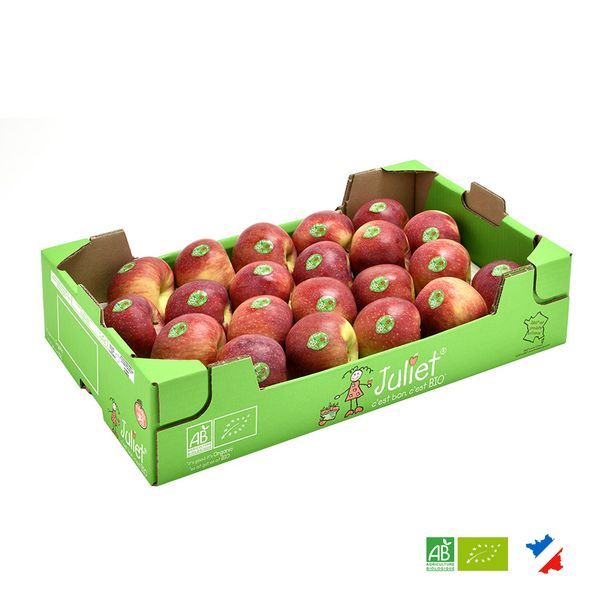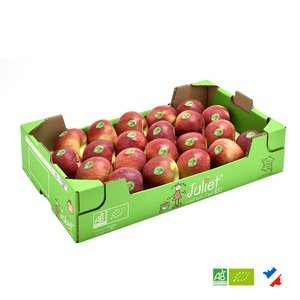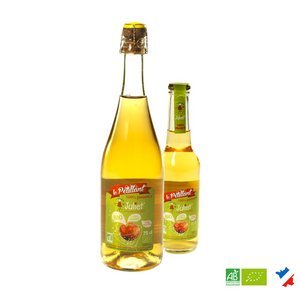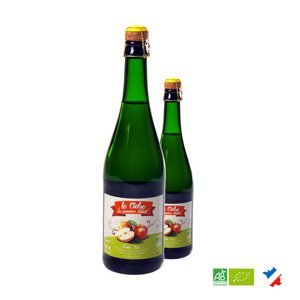When are Juliet® apples harvested?
The Juliet® apple is a late variety. It is harvested from the start of October through to mid-November.
Organic apple season
You're probably wondering what the season is for organic apples, and Juliet® apples in particular. Let's find out together…
Organic apple picking
Apples have a long shelf life, yet the picking season is limited. As soon as the apples fall to the ground, harvesting can begin. All apples have a different picking season. The earliest apples are picked in August, while the latest are harvested until the end of October. In August, for example, there are Vista Bella, Melba and Delbarestival apples. In September, the famous Royal Gala or Reine des Reinettes. And in October, Granny Smith, Fuji or Melrose.
The latest apples have the longest shelf-life.
Picking the Juliet® apple
Juliet® apples keep well for a long time, thanks to their late harvest and thick skin. In fact, it can be stored for several weeks or even months, either in a cool cellar or in your vegetable crisper.
You can then eat it in a variety of ways: raw or cooked, it's sure to tempt your taste buds.
To vary the pleasures, we suggest a number of recipes using Juliet® apples, such as tarte tatin, black pudding egg rolls and Juliet® cider crepes. Discover them now > find out more.
Everything you need to know about harvesting Juliet® apples
Apples are a very popular fruit in France. Appreciated for their sweet, gourmet flavor, the French eat them every day. Far ahead of oranges and bananas, they consume 20 kg a year. For apples to be tasty and juicy, they need to be picked at the right time. What about our Juliet® apple ?
When should apples be picked ?
Apples are harvested when they are ripe. To recognize this, simply observe whether any have fallen naturally, or whether they can be detached by turning them ¼ turn.
How do you know when an apple is ripe ?
There are several ways to tell if an apple is ripe. First of all, its color will help you: ripe apples have a bright, colorful hue. And, as mentioned above, if it comes off easily, the apple is ready to be picked.









